Kau Criar: A Chronicle of Fostering Innovation and Entrepreneurship in Guinea-Bissau
December 18, 2023
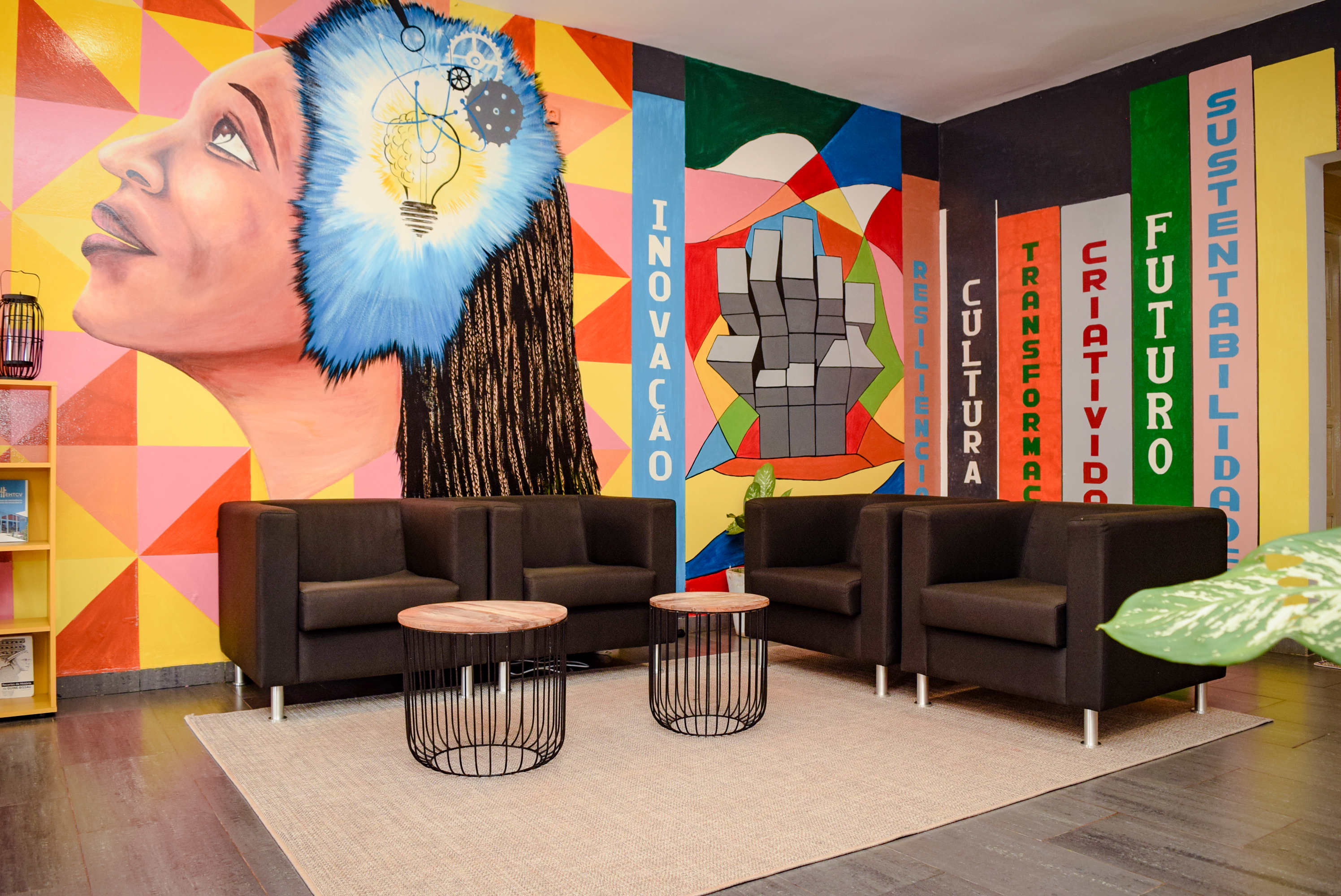
Open foyer of Kau-Criar Space
In the dynamic narrative of Guinea-Bissau's entrepreneurial evolution, the pivotal year of 2020 marked a crossroads, driven by the urgency for swift, innovative, and sustainable solutions amidst the challenges posed by the COVID-19 pandemic. Recognizing this imperative, UNDP Guinea-Bissau, in collaboration with local partner InnovaLab and the World Bank, orchestrated Hack4SDGs and PALOP Innovation Journey, E-voluir. These initiatives aimed to empower young entrepreneurs across PALOP countries with tools and knowledge to address issues related to e-governance, digital transformation, and the economy.
E-voluir not only exemplified the nurturing of the local entrepreneurial and innovation ecosystem but also served as a beacon of South-South Cooperation, earning recognition in the United Nations Office for South-South Cooperation (UNOSSC) Report on "Good Practices in South-South and Triangular Cooperation: scaling up made-in-Africa solutions."
Within the corridors of the Digital Transformation taskforce's weekly deliberations, a shared aspiration emerged — bolstering the burgeoning entrepreneurial scene in the country. However, a significant challenge surfaced: the limited interaction and collaboration among diverse partners. As discussions deepened, a consensus materialized — the imperative to unite individual institutions, initiatives, isolated projects, and fragmented support programs into an interactive and interconnected space. This shared vision gave rise to what we now recognize as the Innovation Hub.

Digital Transformation Week 2021, discussions surrounding the impact of digital transformation in Guinea-Bissau and on its entrepreneurs.
The Birth of the Innovation Hub
Fast-forward to 2021, under the Economic Resilience project of the UNDP's Strategic Economic Cluster, a tangible project took shape. The goal was clear: create a physical operating space for the Innovative Entrepreneurship Ecosystem Forum, the material core of an innovation cluster comprising established firms and innovative startups. UNDP collaborated with Impact Hub to design the forum, fostering connectivity through workshops, conferences, and shared spaces. This center would not only host commercial fairs, training workshops, and cultural events but also become a valuable asset for the creative industries. The Accelerator Lab was responsible not only to conduct a community mapping of key stakeholders, but also to outline possible locations for the Innovation Hub, based on strategic components.
Key Components Unveiled
The project outlined key components crucial for success:
- Participatory governance through a bottom-up approach.
- Mapping key stakeholders to establish the eco-system of entrepreneurs.
- Creation of an innovative and creative co-working space.
- Development of an adjacent digital platform to encourage knowledge sharing and e-learning.
To ensure sustainability, leadership from existing incubators in the country was deemed essential. A taskforce swiftly convened, featuring key stakeholders from the Bissau-Guinean entrepreneurship ecosystem. Weekly meetings became the crucible for shaping the Innovation Hub's strategic objectives, sustainability measures, and services. Members included the Industrial Association of Guinea-Bissau (AIGB), InnovaLab, CIDE, Impact Hub Bissau, entrepreneurs from the UNDP Youth Sounding Board, and participants of Youth Conekt.
The taskforce delved deep into discussions on:
- The types of training and capacity-building available and their significance.
- Strategies to foster collaboration and co-creation.
- Making the ecosystem visible to itself.
- Strategies to discourage working in silos.
- Enhancing the ecosystem's resilience in the face of constant change.
These discussions not only informed the creation of the space but also laid the groundwork for ensuring its long-term sustainability.
Finding the Perfect Location
In our quest to pinpoint the location for the Innovation Hub, a dedicated team embarked on an exploration of potential sites. While the taskforce diligently deliberated on the Hub's use and sustainability during their weekly meetings, this parallel effort involved surveys and meticulous viewings to identify optimal settings. The guiding principle was clear: the selected sites would ideally be state-owned and available for rent at a symbolic price, ensuring alignment with the overarching goal of serving the entrepreneurial ecosystem. Crucially, the chosen location needed to be more than just financially feasible. It had to be accessible, nestled in a vibrant area brimming with individuals passionate about entrepreneurship. Moreover, the space had to be generously proportioned to meet our objectives of facilitating co-working spaces, meeting rooms, and areas dedicated to training and capacity building.
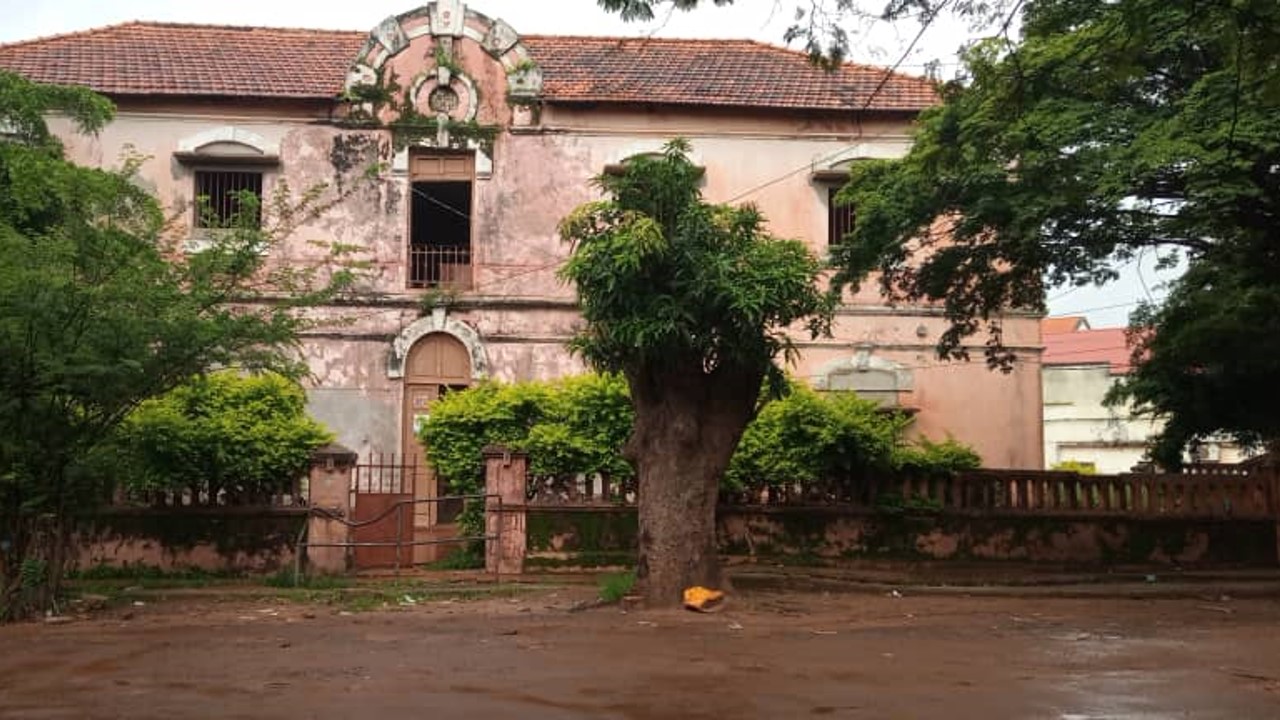
Former School in City Center - strategically located with several open spaces.
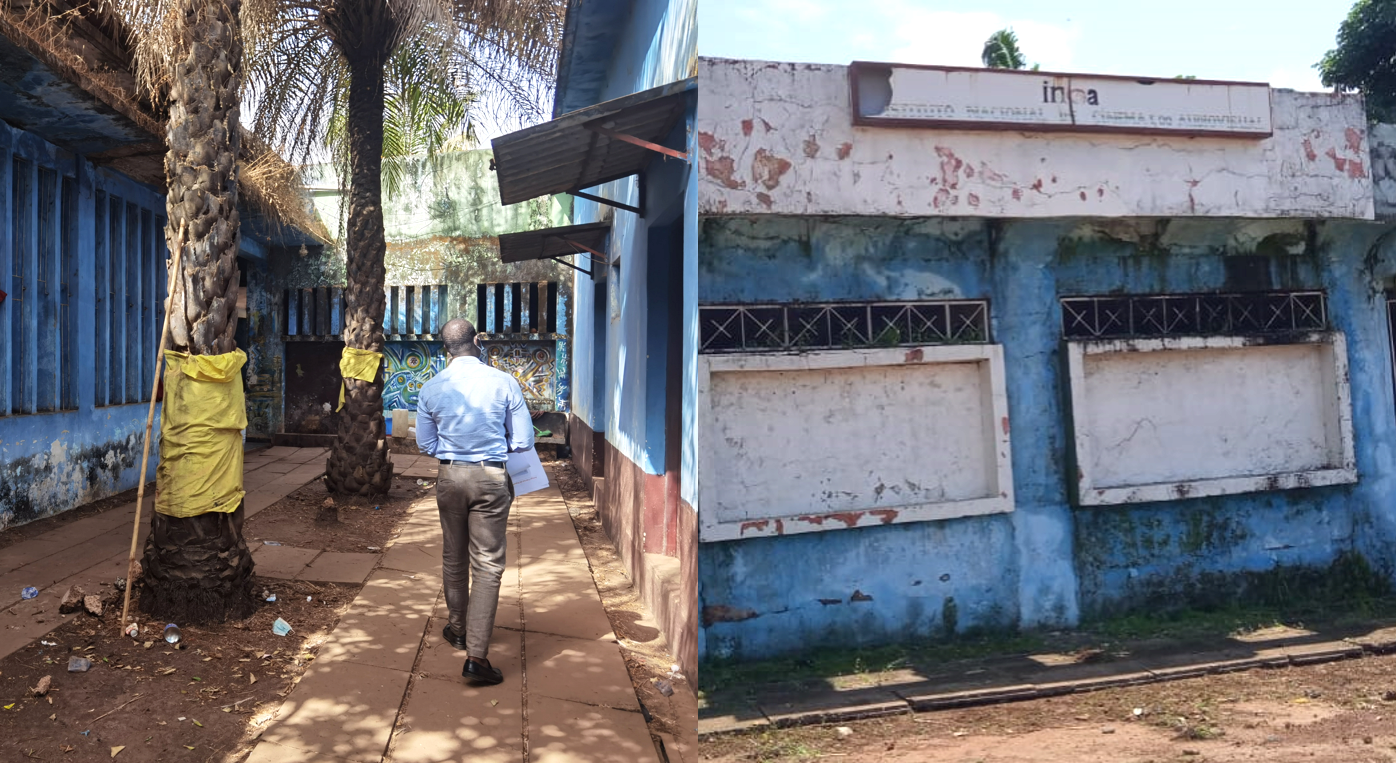
Former National Institute of Cinema and Audiovisual - located next to National Association of Youth Entrepreneurship, surrounded by five high schools but required intense restoration.
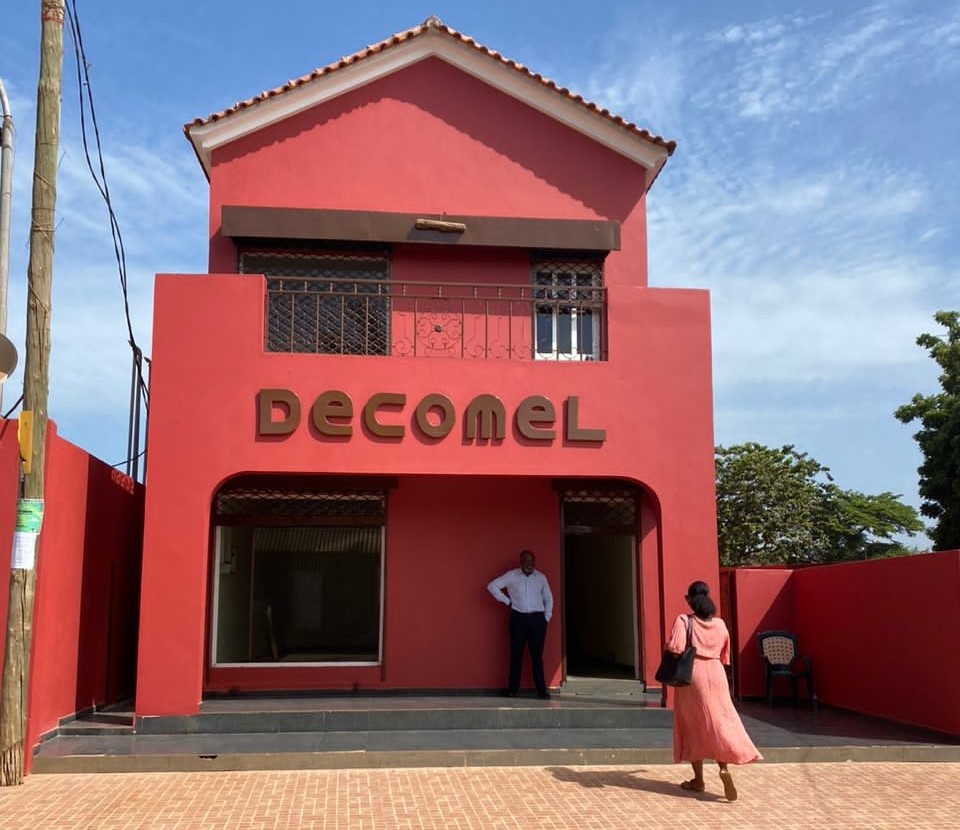
Former Decomel, space used a spa and gym - well located and spacious.
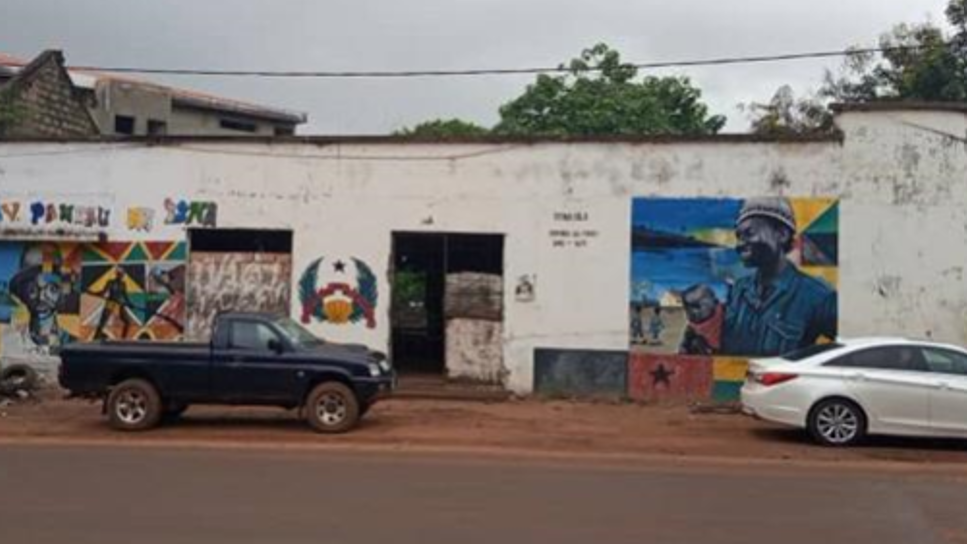
Former Foam Factory - located in vibrant area of the city with minimal restoration required.
Ultimately, the former DECOMEL building emerged as the ideal choice. Its strategic location, thoughtfully designed architecture, made it stand out. Beyond its accessibility to entrepreneurs, the building's proximity to key institutions—such as financial entities, the Ministry of Finance, and the Centre of Formalization of Businesses—further solidified its suitability. This strategic positioning ensures that the Innovation Hub is not only easily accessible, but also strategically placed within reach of vital resources frequently utilized by entrepreneurs in the country.
Introducing Kau Criar – A Nexus of Creativity and Learning
As a result of a survey carried out internally (UNDP) and externally (among partners), the most mentioned names were Kau and Criar, as well as Co-Criar. In Criolo, "kau" signifies home or space, while "criar" embodies creation—a fusion symbolizing Kau Criar as the entrepreneurial home. Inspired by Guinea-Bissau's vibrant culture, local entrepreneurs crafted a space where innovation, creation, and knowledge flourish.
To bring this vision to life, Impact Hub assumed temporary management. Their partnership with UNDP activated the ecosystem, and as a global network fostering impact, Impact Hub brings a wealth of experience, inspiring collaborative communities and providing diverse programs. Since 2014, they've championed social entrepreneurship in fragile states, aligning with our belief that such states hold immense potential to address global challenges.
Now, Impact Hub Bissau oversees Kau Criar, offering dynamic spaces like hot desks, meeting rooms, ecosystem gatherings and capacity building—a testament to our shared commitment to fostering impactful, collaborative endeavours.
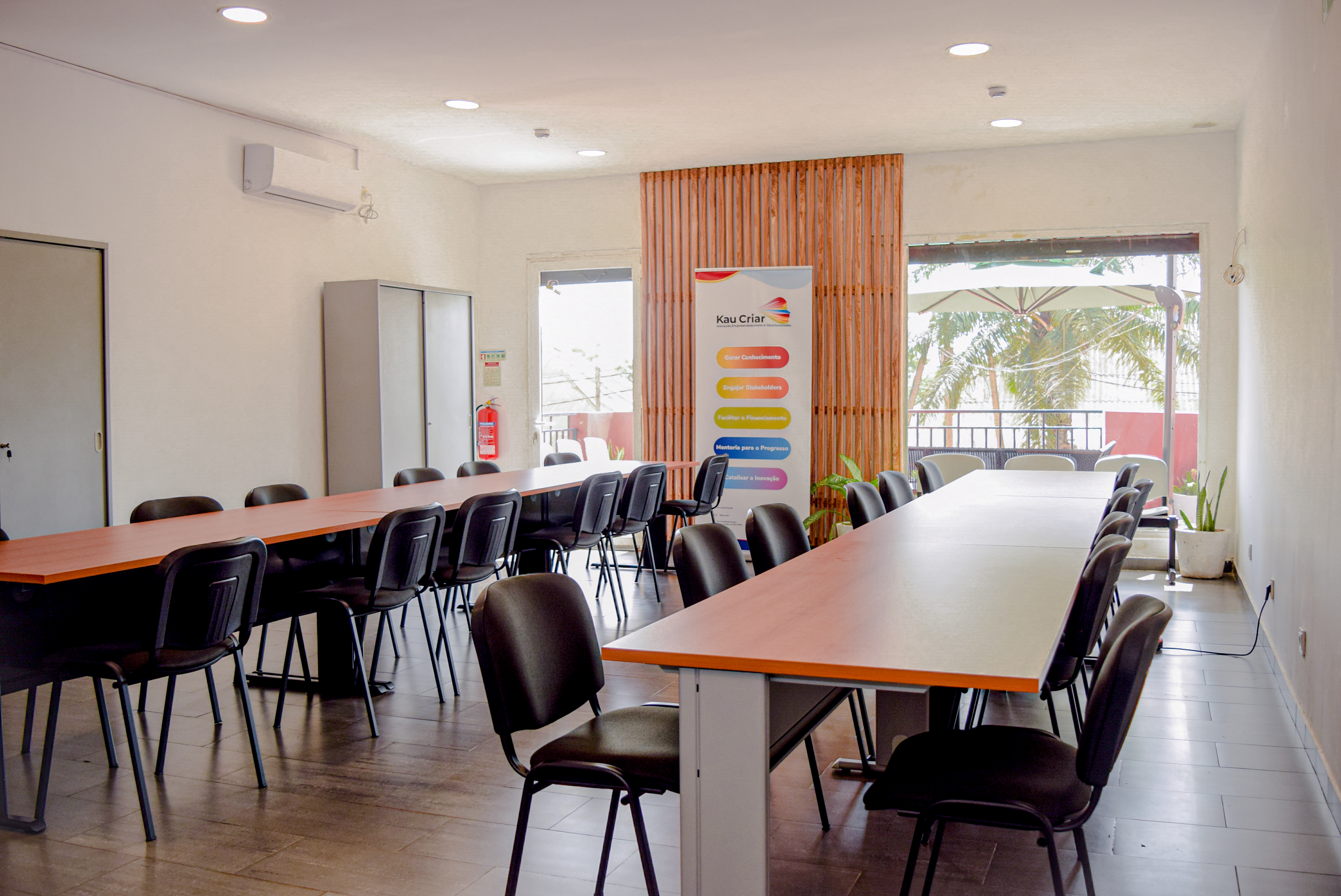
Kau Criar hot desking space.
The Future Unveiled: Kau Criar's Path Ahead
Kau Criar, born from a UNDP initiative, has transcended its origins. While it's not UNDP-owned, the organization has been a guiding force, shaping the space to meet the entrepreneurial ecosystem's needs. To ensure long-term sustainability, the reins must be held by those fostering Guinea-Bissau's entrepreneurial landscape. The country's entrepreneurial spirit aligns with regional counterparts—marked by risk-taking, innovation, and a shared commitment to Agenda 2030.
Sustainability for Kau Criar hinges on local leadership deeply attuned to the ecosystem's nuances and the evolving national landscape. A foundation of co-creation, knowledge exchange, and continuous capacity building is essential. The resilience and potential witnessed among Guinea-Bissau's entrepreneurial stakeholders fuel our optimism for Kau Criar's future—a future rich with growth and possibilities.
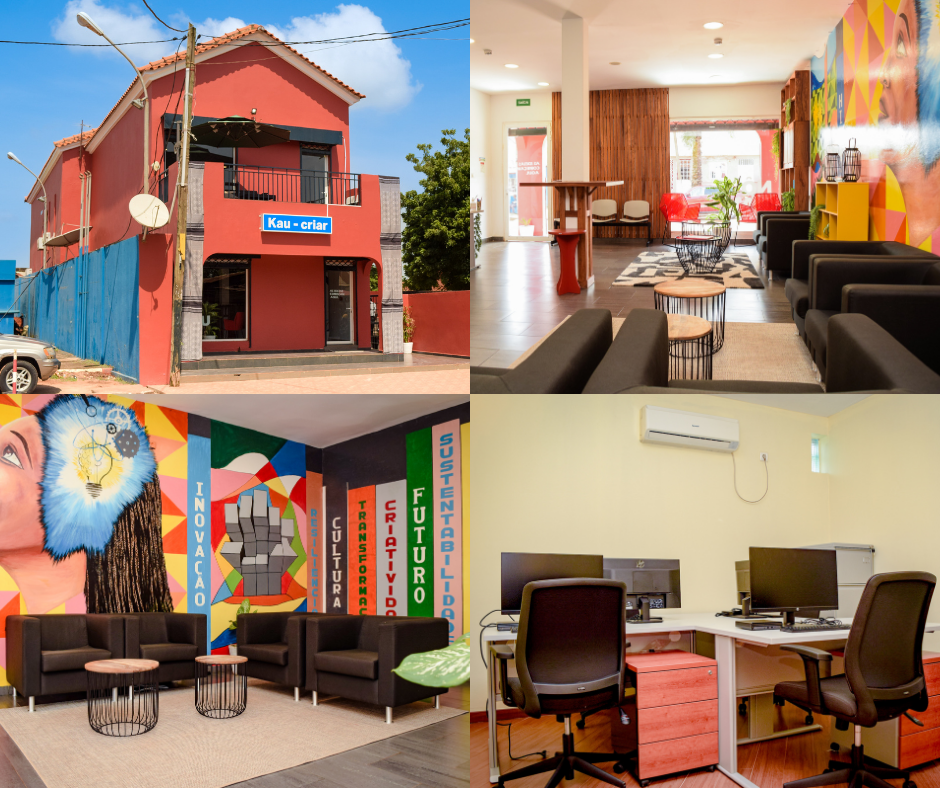
Kau Criar space outside view (top left), reception and open area (top right), waiting area (bottom left) and office space for renting (bottom right).
The Power of Collective Inteligence
A sincere thank you to our esteemed partners—InnovaLab, ANEJ, No Morança, Djassi Africa, AIGB, Cantina Nutribem, Buelo Jobs, Orange, MTN, BMW Foundation, Fabrica de Start-ups Brasil, Impact Hub, CIDE, and Accelerator Lab Cabo Verde & Angola. Your active collaborations and dedication in partnership with UNDP Guinea-Bissau have birthed what is now known as Kau-Criar. Your knowledge and experience have contributed to creating a space now open to all entrepreneurs in Guinea-Bissau. Together, we've built more than a physical space; we've cultivated a vibrant hub for innovation and collaboration.
The next steps for Kau Criar are to conclude the legal structure, which is being developed through participatory design with frequent workshops involving local entrepreneurs and incubators to ensure longevity. The most recent Accelerator Lab mission to Cabo Verde, focusing on entrepreneurship, facilitated a fruitful exchange regarding the use and sustainability of co-working spaces and the entrepreneurial ecosystem of Cabo Verde. This provides potential for future strategic collaboration to enhance the impact of Kau Criar.
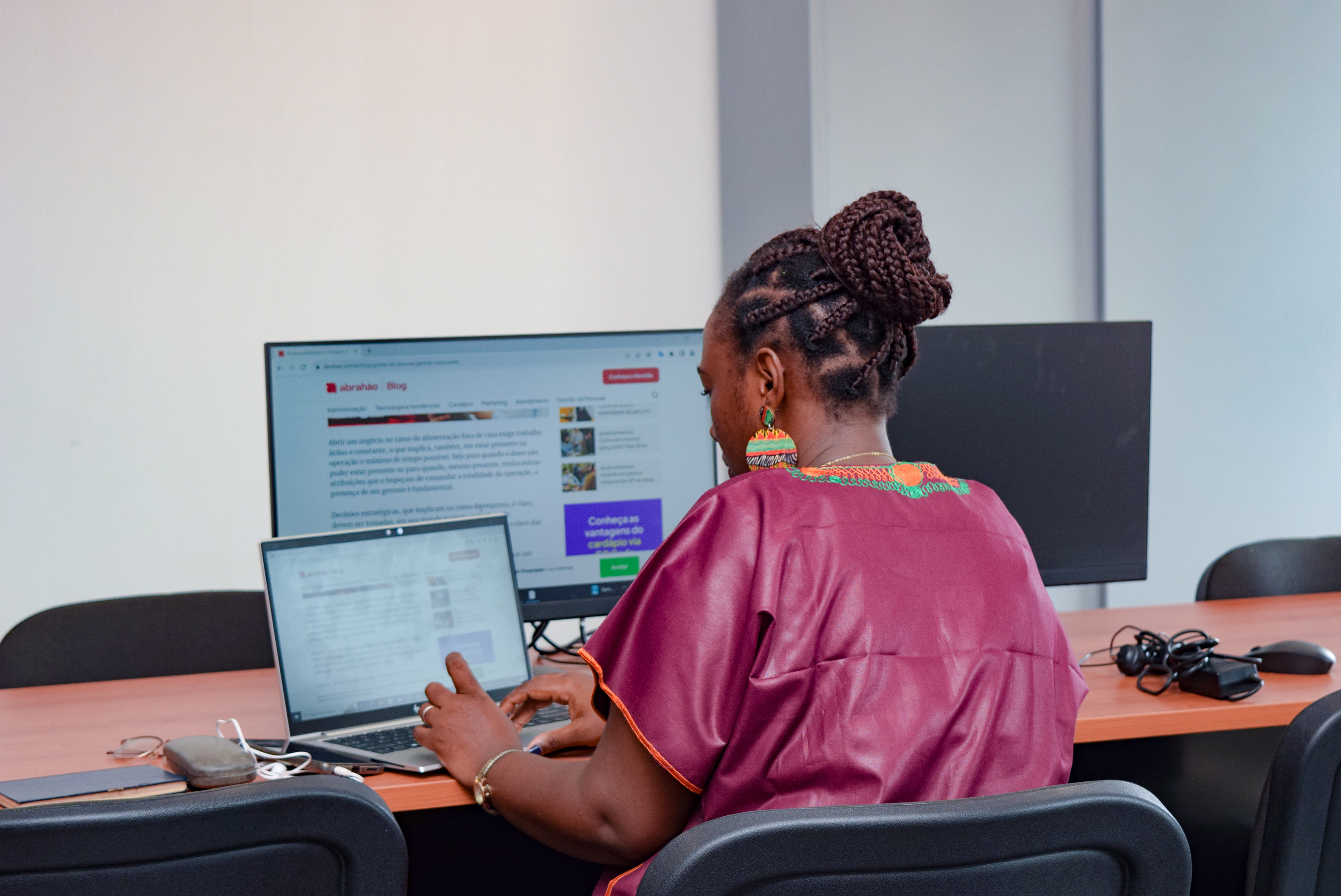
Entrepreneur using co-working hotdesks at Kau Criar.

 Locations
Locations